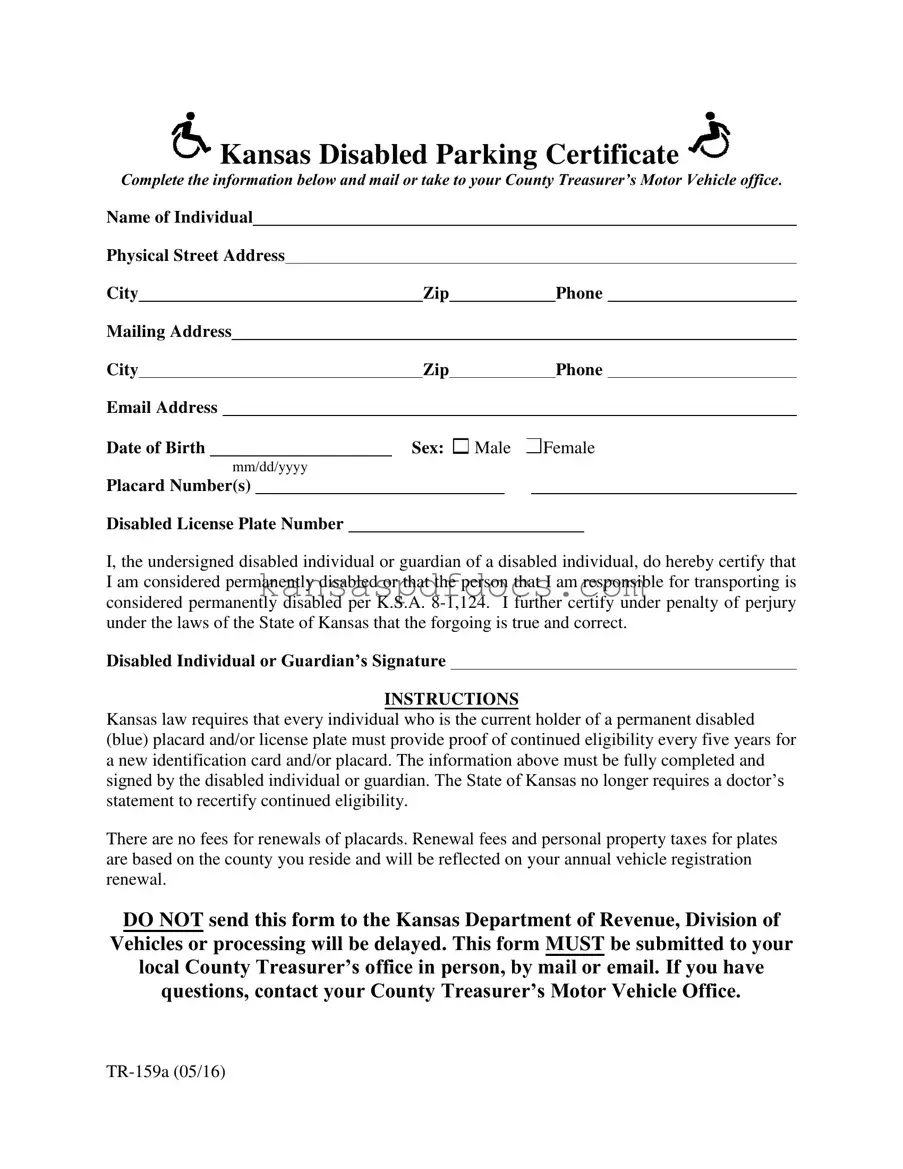Download Kansas Disabled Parking Form
The Kansas Disabled Parking Certificate is a crucial document for individuals with permanent disabilities, allowing them to access designated parking spaces. This form must be completed and submitted to the local County Treasurer’s Motor Vehicle office to ensure continued eligibility for disabled parking privileges. Understanding the requirements and process for this certificate is essential for maintaining compliance with Kansas law.
Access This Form Now

Download Kansas Disabled Parking Form
Access This Form Now
Your form isn’t ready yet
Edit and finalize Kansas Disabled Parking online without printing.
Access This Form Now
or
Get PDF Form
